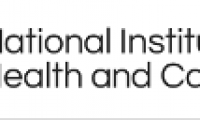-
Click Expands to Substance Use Disorder With Indivior Digital Therapeutics Pact
- Source: drugdu
- 178
- September 12, 2023
-
US announces first ten drugs up for Medicare price negotiation
- Source: drugdu
- 103
- August 31, 2023
-
CMS
- Source: drugdu
- 93
- August 31, 2023
-
AstraZeneca Latest to Sue Biden Administration Over IRA’s Drug Price Negotiations
- Source: drugdu
- 107
- August 30, 2023
-
Healthy diet and organized sports linked to better reasoning skills in children
- Source: drugdu
- 116
- August 19, 2023
-
Eli Lilly announces positive results for Retevmo in phase 3 lung cancer study
- Source: drugdu
- 200
- August 9, 2023
-
NICE publishes draft guidance not recommending CSL’s haemophilia B gene therapy
- Source: drugdu
- 107
- August 7, 2023
-
Octapharma Secures FDA Nod for Warfarin Reversal Agent Balfaxar
- Source: drugdu
- 139
- July 28, 2023
-
Novartis Plans Appeal to Ward Off Entresto Generics
- Source: drugdu
- 259
- July 12, 2023
-
first interchangeable biosimilar to Humira rolls out across US
- Source: drugdu
- 133
- July 5, 2023
your submission has already been received.
OK
Subscribe
Please enter a valid Email address!
Submit
The most relevant industry news & insight will be sent to you every two weeks.













